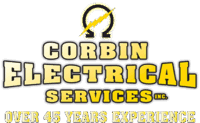 The ravages of winter are barely behind us, but already it’s time to plan ahead for hurricane season. In New Jersey, hurricane season officially begins on June 1st, according to the National Hurricane Center, and that means right now is a good time to make sure you understand some of the most common home generator problems and their causes. Here’s a quick review of the top three problems you’re most likely to encounter:
The ravages of winter are barely behind us, but already it’s time to plan ahead for hurricane season. In New Jersey, hurricane season officially begins on June 1st, according to the National Hurricane Center, and that means right now is a good time to make sure you understand some of the most common home generator problems and their causes. Here’s a quick review of the top three problems you’re most likely to encounter:
- Stale fuel: this is perhaps one of the most common problems encountered by homeowners and also one of the easiest to avoid. Adding a fuel stabilizer during the “off” season can help prevent fuel breakdown that can occur when the generator is being stored unused for months at a time, but a better option is to drain the old fuel from the tank and the carburetor before placing your generator in storage. Some carburetors have drains while others are drained by powering on the generator and allowing it to run out of gas.
- Backfeed: Backfeed is another common problem encountered by home generator owners, especially those with limited experience in their use. Backfeed occurs when a generator is plugged into a home’s wiring system without the use of a transfer switch. This can potentially cause electricity to leave the home and travel along the primary power lines, where they can cause serious equipment damage and shock-related injuries to anyone who may be working on the power lines. Backfeed can also overwhelm your own circuits and cause significant damage to your generator. The best way to avoid backfeed is to plug appliances directly into the generator when possible; when that’s not an option, such as when powering a furnace or central air conditioning system, you’ll need to have a transfer switch installed to temporarily transfer the supply from the electric company to the generator. Once the power outage is over, the switch can be used to transfer power back to the grid.
- Running on empty: Running out of fuel while your generator is running is another common problem, and one that can result in damage to the generator’s magnetic coils. When that happens, your generator may still start, but it won’t be able to produce power. To prevent “running on empty,” be sure to check your fuel levels before starting the generator and periodically while it’s in operation, especially if it’s being used for long periods of time. Store extra gasoline safely using approved containers. Also be sure to “power down” the electrical load before turning the generator off.
Finally, never work on a generator unless you feel comfortable working with electricity and gasoline engines. And never attempt a repair or maintenance chore unless you understand the instructions in your owner’s manual and you’re sure you know what you’re doing.
Not comfortable doing repairs yourself? No problem! At Corbin Electric, our service department is available 24 hours a day, seven days a week, so you never have to worry about having the power you need. To learn more or to schedule a repair or appointment, visit our website or call (732)410-7695.


